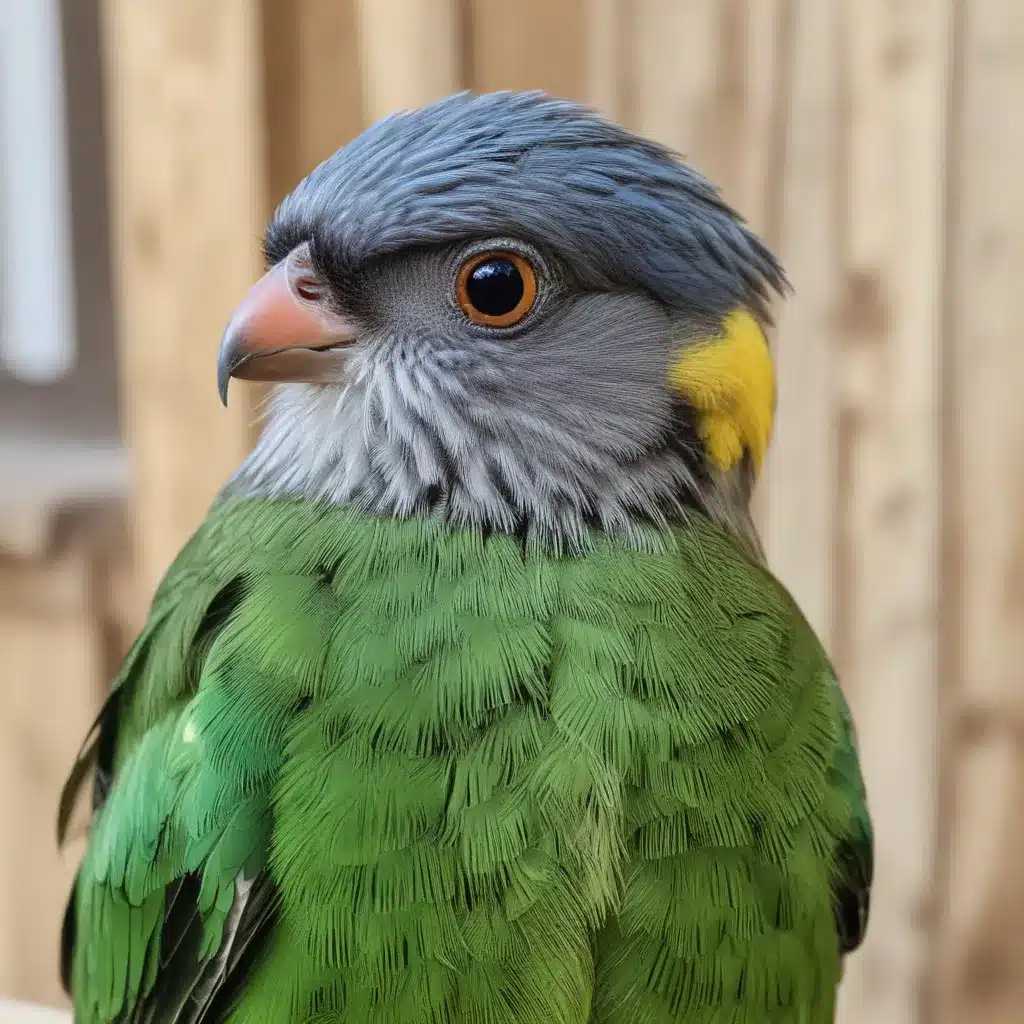
Avian Lifecycles and Aging
As an experienced avian caretaker, I’ve had the privilege of working with birds of all ages and abilities. While young, vibrant hatchlings are undoubtedly adorable, there’s something truly special about the elder statesmen of the avian world. Senior and special needs birds require a bit of extra TLC, but the joys they bring are immeasurable.
Understanding Senior Bird Physiology
Just like humans, birds undergo distinct physiological changes as they age. Feathers may become dull and brittle, eyesight and hearing may diminish, and joint mobility can decrease. Metabolic processes also slow down, affecting everything from digestion to temperature regulation. It’s crucial to be aware of these age-related shifts so you can make accommodations for your feathered friend’s comfort and wellbeing.
Recognizing Age-Related Health Concerns
Older birds become more susceptible to a variety of health issues, from arthritis and obesity to organ failure and cancer. Keeping a close eye on your senior bird’s physical condition is essential. Look for signs of pain or discomfort, changes in appetite or weight, unusual respiratory patterns, and other atypical behaviors. Proactive veterinary checkups are a must to catch any problems early.
Adaptations for Elderly Avian Companions
Modifying your bird’s habitat and daily routine can make a world of difference. Provide soft, cushioned perches to ease joint stress. Install ramps or steps to reach favorite spots. Adjust cage/aviary lighting and temperatures to accommodate failing senses and temperature regulation. And be prepared to assist with preening, feeding, and other tasks your elderly bird may struggle with.
Specialized Care for Special Needs Birds
While senior birds face their own unique challenges, the needs of birds with disabilities or other special requirements can be even more complex. But with the right adaptations and enrichment, these special feathered friends can absolutely thrive.
Identifying Common Disabilities in Birds
Physical impairments like blindness, deafness, and missing limbs are perhaps the most obvious special needs in birds. But cognitive/neurological disorders, behavioral issues, and chronic illnesses also fall under the “special needs” umbrella. Understanding the specific limitations and requirements of your bird’s condition is key.
Tailoring Environments for Unique Needs
Creating a safe, comfortable, and stimulating habitat is critical for birds with disabilities. For blind or partially sighted birds, minimize clutter and rearranging to avoid confusion. Provide auditory and tactile cues to aid navigation. Wheelchair-bound or amputee birds may need customized perches, ladders, and other assistive equipment. And birds with neurological disorders may benefit from low-stress, minimally stimulating environments.
Enrichment and Quality of Life Strategies
While the needs of special needs birds may seem daunting, there are so many wonderful ways to enrich their lives and promote their wellbeing. Engage their senses with a variety of textures, scents, sounds, and interactive toys. Encourage natural foraging and play behaviors. And don’t forget the power of positive human interaction and companionship! With a little creativity, you can ensure your special bird thrives.
Nutritional Considerations for Aging and Disabled Avians
Proper diet is critical for the health and longevity of any bird, but it’s especially important for senior and special needs feathered friends. Their unique nutritional requirements and feeding challenges require a thoughtful, tailored approach.
Dietary Requirements of Senior Birds
As birds age, their metabolism and nutritional needs evolve. They may require higher-calorie, easily digestible foods to maintain healthy weight and energy levels. Supplements like glucosamine, omega-3s, and antioxidants can also support joint health, immune function, and other age-related concerns. Consulting an avian veterinarian is advised to develop the optimal diet plan.
Meal Planning for Birds with Special Needs
Feeding birds with physical or cognitive disabilities may involve specialized food preparation or assistive equipment. Soft, bite-sized morsels may be necessary for birds with beak/jaw issues. Slurry or puree consistency can aid swallowing for birds with neurological disorders. And for physically disabled birds, you may need to hand-feed or use specialized feeding apparatuses to ensure proper nutrition intake.
Strategies to Encourage Healthy Eating
Maintaining a healthy appetite can be a challenge for aging or ill birds. Try enticing them with varied, novel foods and incorporating positive reinforcement during mealtimes. Offer small, frequent meals and monitor consumption closely. And be patient and persistent – it may take time for your bird to adapt to dietary changes.
Behavioral and Emotional Wellbeing of Elderly and Disabled Feathered Friends
While meeting the physical needs of senior and special needs birds is crucial, don’t overlook the importance of their mental and emotional health. Caring for these unique avian companions requires a holistic approach.
Coping with Changes in Personality and Habits
As birds age or face disabilities, their behaviors and personalities can shift dramatically. They may become more anxious, aggressive, or withdrawn. Establishing a predictable routine and minimizing stressors can help ease these transitions. And remember – with patience and understanding, you can help your bird adjust to their “new normal.”
Providing Comfort and Companionship
Elderly and disabled birds often require more hands-on care and attention. Gentle petting, soothing music, and other positive interactions can work wonders for their emotional wellbeing. And don’t underestimate the value of an avian companion – pairing your special needs bird with a calmer, more easygoing feathered friend can be incredibly beneficial.
Ensuring a Stress-Free Environment
Reducing environmental stressors is paramount for the health and happiness of senior and special needs birds. Maintain a quiet, dimly lit space with minimal foot traffic. Minimize sudden changes or loud noises that could startle or overstimulate your feathered friend. And be mindful of temperature, humidity, and other climate factors that could exacerbate their physical or emotional discomfort.
Caring for elderly or disabled birds takes patience, creativity, and a deep understanding of their unique needs. But the rewards are immeasurable. By providing specialized care, tailored enrichment, and a lifetime of love and companionship, you can ensure your senior or special needs bird lives out their golden years in true Birdie Bliss. For more information on avian care, health, and community, be sure to visit Mika Birds Farm – your trusted resource for all things feathered and fabulous!


